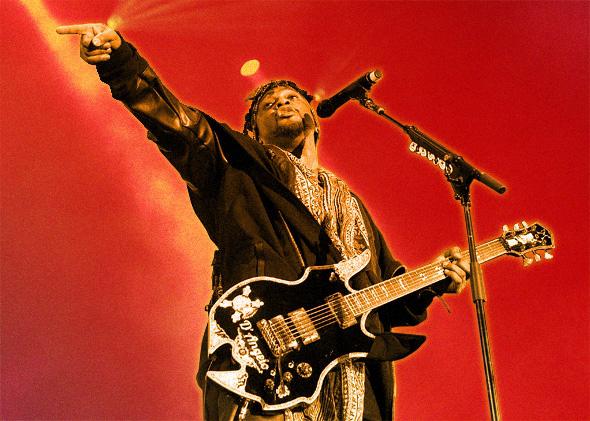Hey all,
I couldn’t agree more with Ann’s point that having women’s voices and names dominate the charts is insufficient without equal prominence behind the scenes, especially in the studio. The Fader did a great virtual roundtable about the shortage of female producers this fall, from that site’s more dance-oriented point of view. And it made me uneasy to watch one of my favorite self-producers of the past several years, Grimes, release a single that expanded beyond her previous artist’s-loft insularity (it was originally written for Rihanna) and face an enormous indie fan backlash. She then reportedly trashed her new album (she said it “sucked”). It’s hard to imagine a male artist going through quite the same wringer.
I’m cheered, though, by Charli XCX, who, after a couple of years of sparkling on other people’s hits (on “Fancy” as well as Icona Pop’s “I Love It,” which she wrote), finally made herself the focus of attention with “Boom Clap” (one of the songs of the year that makes me swooniest) and, just this month, her new album Sucker. This weekend she impressed on Saturday Night Live, and in one of my favorite interviews of the year, on NPR, talked about being her own executive producer: “There’s such a huge misconception about women in the industry and how we’re all supposedly puppets. I just wanted to make it clear that’s definitely not the case with me.”
Which reminded me of the Culture Gabfest bar brawl that Julia Turner and I got into this fall with Stephen Metcalf, when he kept insisting Taylor Swift was nothing but a market product, the “Pepsi” to Britney Spears’ Coke—demonstrating that even the most brilliant cultural thinkers can cling to faux-rebellious and unfortunately often sexist rock myths (or, in Stephen’s case, maybe Frankfurt School myths) about how pop works. As Chris said, maybe we can’t retire the “poptimist” banner yet, although it may well be time to start complicating it.
What I loved most in the XCX interview, though, was this: “I want my music, whether it’s sung by other people or sung by myself, to affect the way the Top 40 radio sounds. I want to heavily influence it with things that have come directly from my brain.” She wants to define eras and zeitgeists, a much broader creative ambition than just hits and fame. Vying for that power is what makes pop eras truly exciting—think of Prince trying to outpace Michael Jackson in the mid-’80s, or the sparring between the Beatles, the Stones, Dylan, and the Beach Boys to be the most forward-thinking artist of the month, every month, in the mid-’60s.
That kind of aspiration, I think, is becoming part of this new pattern of late-year surprise album drops. We’ve already discussed how Beyoncé set the terms for 2014 (and for a deeper analysis, everyone should check out Ann’s extraordinary year-end essay for NPR), and now D’Angelo is taking his own shot at changing the conversation with Black Messiah, his first full-length album of this century.
I haven’t yet given it as many spins as Chris, but several thoughts struck me: It’s not exactly a pop album in 2014 terms, is it? It’s too loaded with deep-groove Prince, P-Funk, and Sly moves, layer on layer (no doubt reflecting the long gestation), more for heads than for radio hook junkies. It’s determinedly spiritual and political, and lush rather than thin and tough. Given its title, I almost want to set it up against Kanye West’s Yeezus, that harsh, spare depiction of black manhood under persecution—D’Angelo has replied with an aesthetic of salvation and transcendence that doesn’t shun grim realities.
Sonically it might be a kind of throwback, but as much as I’m beguiled by the slow-drip minimalism of the new R&B that Ann pointed to from artists such as Tinashe and FKA Twigs, I feel like Black Messiah is arousing a hunger I hadn’t quite noticed I had. It’s a yearning for a little more music in the music, for a fullness and liveliness that’s not present at the pop 2014 poles of anthemic shouts or seductive withdrawal. It might be a version of the humanism some dissenters against poptimism feel they’re holding out for. They ask whether we really claim that current pop and R&B equal the soulfulness of previous peak eras, and for all the selective memory at work in that question, it’s not one to avoid altogether. D’Angelo and his collaborators are posing in their own way the challenge of how much we can demand from pop—and by extension, how much it can bear. The slam against Black Messiah will be that it’s overstuffed, overcooked; on initial exposure I’m undecided. It might also be that we listeners are too accustomed to being catered to in our distraction and impatience.
I’m eager to hear what you all have to say, especially our special guest in this round, the musician, producer, teacher, critic, and radio host Jason King, who’s forgotten more about R&B than I will ever know.
The beat goes on and on and on and on and on,
Carl
